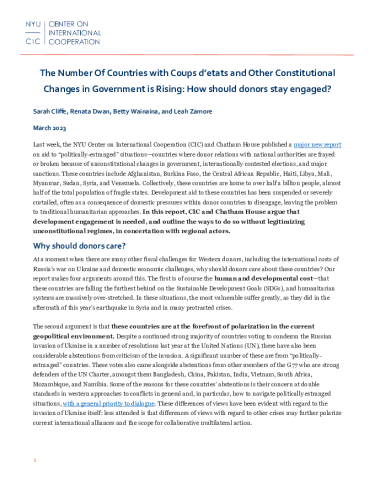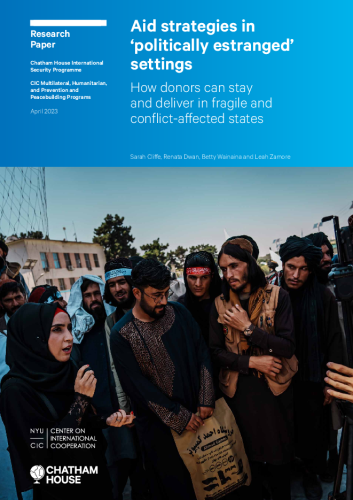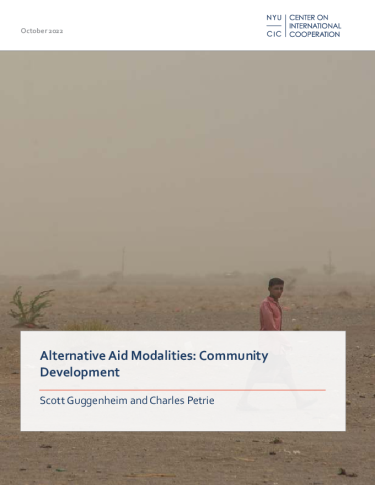Last week, CIC released a major new joint report with Chatham House on aid to “politically-estranged” settings – countries where donor relations with national authorities are frayed or broken because of unconstitutional changes in government, internationally contested elections, and major sanctions.
Development aid to these countries has been suspended or severely curtailed, often because of domestic pressures to disengage, leaving the problem to traditional humanitarian approaches. In this report, CIC and Chatham House argue that development engagement is needed, and outline the ways to do so without legitimizing unconstitutional regimes, in concertation with regional actors.
This piece focuses on two major areas:
- Why should donors care in this current moment?
- What has been new in our thinking about the major challenges and solutions for how to work in these contexts?


